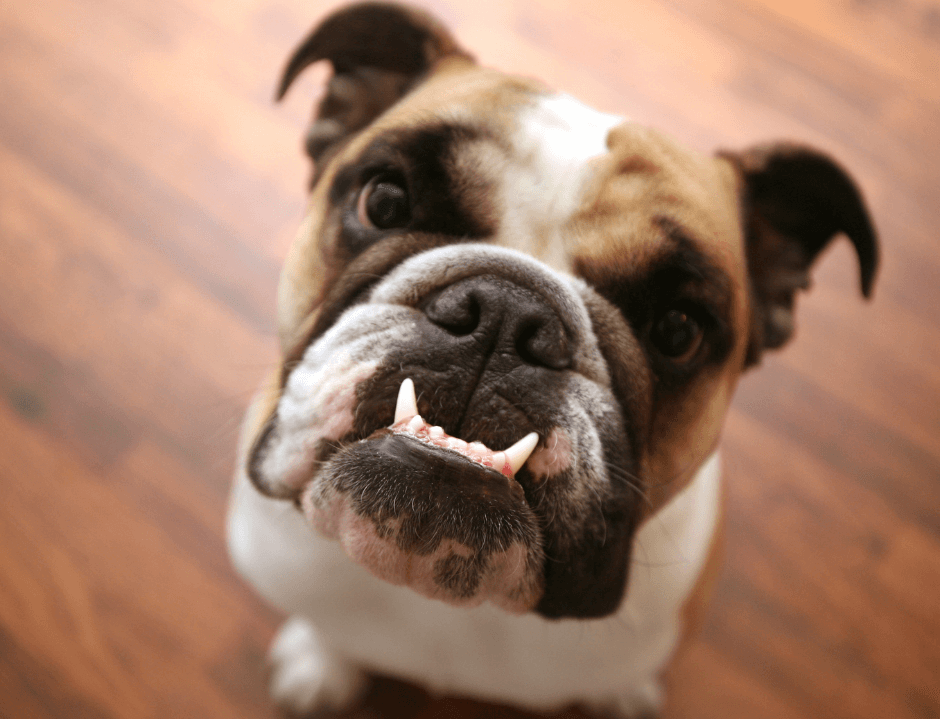4 Tips for Doggie Dental Care

The subject of doggie dental care will arise at some point for every dog guardian. We all want our dogs to be at their healthiest. But dental care for dogs can sometimes be overlooked. For those of us with excellent intentions but less than perfect follow through, here are our four tips for doggie dental care to help you keep your pup’s smile sparkling.
1. Quality Puppy Food
Nourish from within. Feed your puppy good quality food from the start. Search the contents list on the back of the packaging for whole, natural ingredients. For all dog ages and stages of life, avoid dog food made with processed grains, cheap fillers and by-products. And of course, do not include sugary foods in your dog’s diet. Read the human food section in 14 Common Household Hazards for more information on dangerous food for dogs. Instead, search for food containing real animal protein, healthy fats, vegetables and made without artificial colours, flavours and preservatives to keep decay and plaque to a minimum.
2. Dental Treats and Dog Chews
Dental treats are a great way to improve your dog’s dental health. Not only do these treats contain ingredients to freshen breath and clean your dog’s mouth, but they are specifically designed to remove plaque build-up. And as an added bonus, a chew will help exercise a dog’s innate chewing reflex, and keep them busy and content for hours.
The simple act of chewing benefits your dog’s oral hygiene, regardless of what they’re chewing. Chews like pigs ears, trotters and chicken strips are great ways to keep your dog happy, as well as healthy; gnawing scrapes plaque off your dog’s teeth. Take care with your choice of chew – be sure it is recommended for your dog’s size and stage of life, and go for natural ingredients.
3. Teeth Brushing
Chewing dental treats and chew toys may not interest every dog, or it may not be enough to keep their pearlies clean. Your veterinarian may recommend you start brushing your dog’s teeth daily. Depending on the dog, this may be tricky without clear guidance. Dr. Andy Roark of Cleveland Park Animal Hospital says that aspiring to brush their teeth every day is the best plan, but that even brushing three times each week can make a difference. The consequences of plaque build up are too horrid to ignore: bad breath, gum disease, infections and tooth decay.
4. Professional Dental Clean
Your veterinarian can also offer professional teeth cleaning for your dog. Although considerably more costly than the methods above, a professional dental clean is the best way to maintain your dog’s dental hygiene. The recommendation is once per year for optimal results.
Follow these handy doggie dental care tips to ensure years of happy chewing and great health for your pooch.
